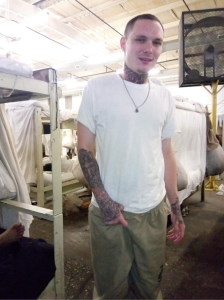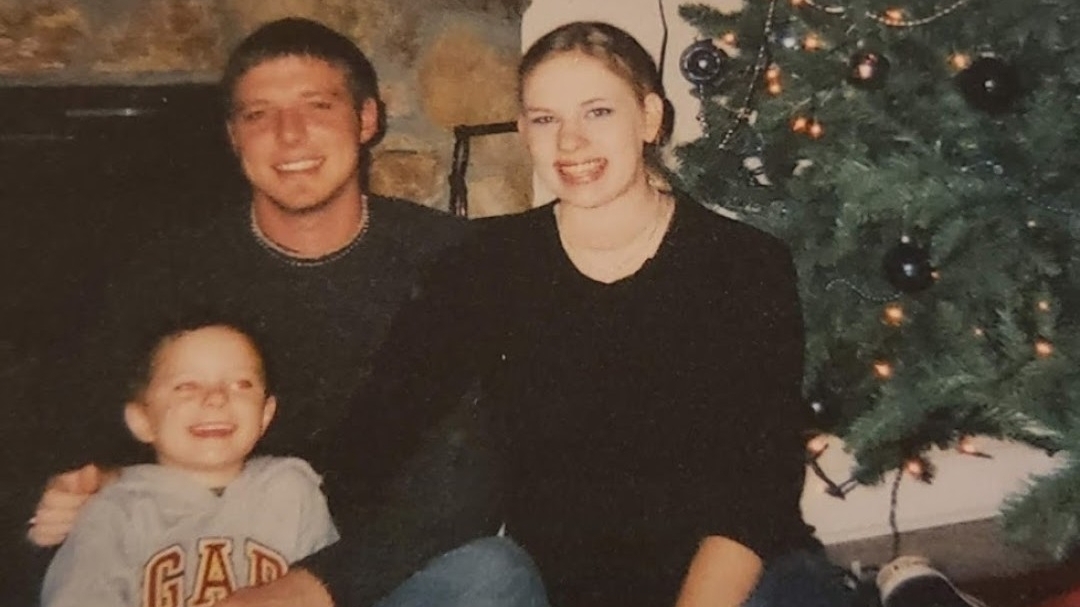|
Getting your Trinity Audio player ready...
|
Cameron Holifield was 22 years old at the time of his death at Staton Correctional Facility on Thanksgiving of last year. Holifield was one of nine individuals who died in state prisons around the holiday. His release date was only a few days away, as Holifield had served almost the entirety of his two-year sentence for riding in a stolen vehicle while on probation in Mobile County in 2020.
Holifield’s body was interred in a pauper’s grave, roughly 178 miles north on the grounds of Limestone Correctional Facility without the knowledge or consent of his mother, father, or step-mother, according to members of the Holifield family who spoke to APR. Each member of the family repeatedly attempted to contact the ADOC in the weeks and months following Cameron’s death but were unable to prevent the state from burying him on the opposite side of the state from where the family lives.
While ADOC protocol mandates that a warden or chaplain of a facility send an official death notice to the family of the deceased, more often than not, other incarcerated individuals notify families ahead of the official confirmation.
In the early morning hours that Thanksgiving, Shayanna Fletcher, Cameron’s birth mother, was contacted by Cameron’s bunkmate, who told her that her son was dead. She immediately called the prison and was connected to a corrections lieutenant.
“It took them what seemed like forever to come to the phone and to tell me, ‘Yes ma’am, unfortunately, he’s dead,’” Fletcher said. “They told me they didn’t know how or anything, and to call back tomorrow.”
The following Tuesday, the chaplain at the facility confirmed to Fletcher and Debbie Mannhalter, a close family friend, that Cameron had died.
“We finally got a hold of the chaplain Tuesday, and he told us,” Mannhalter said. “He said he’d give us a couple of days to get paperwork and stuff, and he apologized.”
What followed was weeks of what Mannhalter described as “this Groundhog Day circle,” where she repeatedly called Staton Correctional Facility, the Alabama Department of Forensics Sciences, and the county coroner’s office, with no one able to tell her where Cameron’s body was located.
“I was never given a location,” Mannhalter said. “It was always the ‘Groundhog Day:’ Call Alabama Department of Forensics, talk to the morgue, talk to the county coroner. I did this every week.”
A warden at Staton Correctional Facility said that paperwork ceding custody of the body would be sent via mail, but the agreement never arrived, according to Mannhalter.
The Alabama Department of Forensic Sciences said in a statement provided to APR on Wednesday that the agency does not comment on specific cases. The Elmore County Coroner’s office have yet to respond to requests for comment.
Only after Fletcher and Mannhalter contacted a Chicago-based lawyer specializing in the rights of incarcerated individuals were they told that Cameron had been buried in Limestone County.
“He hadn’t had a full chance to grow up yet, even if he was 22,” Mannhalter said. “But he was a happy person.”
Upon his release, Cameron was going to go live with Mannhalter and his mother on her property in Baldwin County.
“I just want to know my baby just didn’t suffer,” Fletcher said. “I just worry is he cold in that grave. I know that sounds ridiculous, but I can’t help it. That’s just the way I feel and I think about him”
In a statement from the Alabama Department of Corrections on Tuesday, a department spokesperson confirmed that Holifield was buried on state property at Limestone Correctional Facility on Jan. 9 and said that the department made “several attempts” to make contact with the family but was unsuccessful.
A second statement released on Wednesday insisted that “every effort was made to contact his emergency contact, which was his mother in this case, including certified mail.”
The spokesperson did not explain why Limestone Correctional Facility was chosen as the burial site but said that policy mandates that once “all efforts have been exhausted” in locating the family, a burial would take place on a property owned by the ADOC.

Cameron Holifield with siblings.
“In no way, shape, or form has anybody, not one time, ever tried to contact us,” said Ryan Holifield, Cameron’s father, in an interview with APR. “The fact that they’re saying that they don’t have any of our information or nobody answered or anything like that is totally false. Absolutely, 100 percent false. They have my information, my wife’s information, my mother-in-law’s information. They have everything they need to get in contact with us.”
Holifield and his wife Amanda, who is Cameron’s legal-step mother, both live in Arizona and are originally from Mobile. The news of Cameron’s death arrived on Thanksgiving when Amanda Holifield’s mother called and said that Cameron had died in prison. No individual from the ADOC confirmed this to her or her husband that day or in the months that followed.
“No one ever even told us that our child died,” said Amanda Holifield in an interview with APR. “The only actual physical communication I’ve gotten from anyone from the state of Alabama was from the [state] forensic department saying that they couldn’t release any information yet. That’s it.”
Correctional staff initially denied that Cameron was incarcerated at the facility, telling Holifield that he was not in their system, before insisting that she call back on Monday due to the public holiday. The following Monday, the Holifields together again called the prison and were told by correctional staff that Cameron was not listed in their system. They were then told to speak with a corrections captain at the facility, who did not pick up the phone.
“Since Thanksgiving Day, I’ve called twice a week. Never have I ever been connected to a living person,” Holifield said. “No one has ever returned my call, my husband’s call, or our calls together. We left all our information, phone numbers, emails, everything we think of we left, and nobody’s ever reached back out to us to tell us anything.”
Over the next several weeks, the Holifields attempted to locate the body of their son, reaching out to county and state offices around Alabama.
“I literally sent online requests to every coroner’s office in the state of Alabama that I could find,” Holifield said. “In December, I received this letter back from the Alabama Department of Forensics saying that they couldn’t give us a cause of death because his death was still under investigation. They couldn’t give us any information at all.”
It wasn’t until January, when the Holifields contacted a researcher working for Alabama Appleseed that the family discovered Cameron’s body had been buried in Limestone County. No other member of the family was notified as to the location of his grave.

Cameron Holifield while incarcerated at Staton Correctional Facility.
“You’re gonna decide, personally, where to bury him without even telling us he died,” Holifield said.
The official cause of death in Holifield’s case has yet to be released, but it is believed to have been an overdose. To visit the grave, families of the deceased are require to arrange for an escort from the facility chaplain, as the prison cemetery is not open to the public.
In Amanda Holifield’s requests to the county coroner’s office, she indicated that the family wanted an independent autopsy performed. It remains unclear whether that is still possible.
“When you bury a body without telling anyone, you’re literally trying to hide something,” Holifield said.
During a meeting of the Joint Legislative Prison Oversight Committee in Montgomery on Wednesday, Rep. Chris England, D-Tuscaloosa, questioned ADOC Commissioner John Hamm about the situation involving Cameron Holifield.
“I know exactly the situation,” Hamm said. “We do have someone that deals with constituent services for inmate families. We’re not perfect. We do have an occasional fall through the cracks, but the majority of calls are unfounded.”
England asked Hamm to resolve this issue at the very least, and asked what could be done to ensure families and loved ones of incarcerated individuals can get basic information on the status of things such as health care.
“I want to stress one thing my wife and I talk about all the time, molehills turn into mountains if you don’t communicate with somebody,” England said.
“I don’t know what the perception is, but we’re doing what’s right and what we need to,” Hamm said. “Deputy Commissioner Williams is in the process of getting more constituent service people on staff because you imagine how many calls we get from inmates’ families.”














































